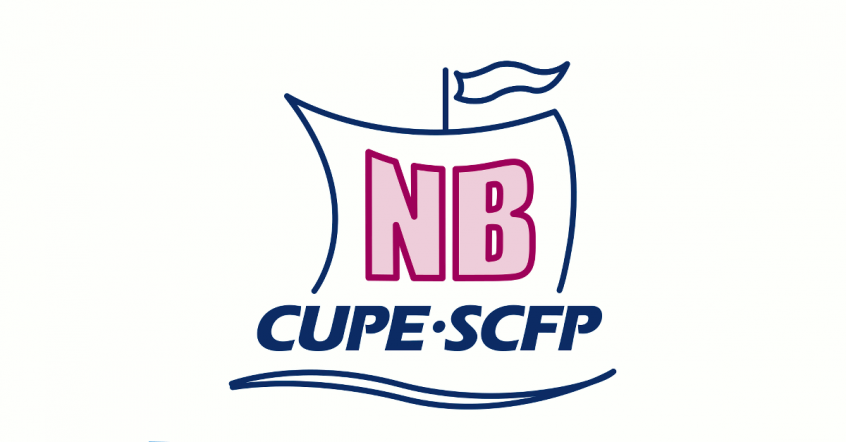In a post-hoc effort to stem ongoing criticism of his pension policy, Premier Alward sent inscribed copies of Jim Leech & Jacquie McNish’s recent book, The Third Rail: Confronting Our Pension Failures to every MLA in the legislature.
In moderate-sounding language, the authors of The Third Rail argue that we should be “redefining” defined benefit plans rather than abandoning them. Pension plans should be made “more flexible” because “fully guaranteed benefits are no longer possible.” Plan members should simply “share” more risk with employers.
On its surface, this language sounds as if the authors are calling for pension plans to be tinkered with rather than dismantled entirely. They appear to be calling for halfway measures and fair compromises that may seem reasonable to many readers.
It’s hardly surprising that Alward was so taken with the book: his government used a similar language of moderation in the public debate over the forced conversion of the defined-benefit public sector plan (PSSA) to a “Shared Risk” pension plan. The government said that pensions weren’t being abandoned in its new “Shared Risk” plans – instead, they claimed to be taking these steps to protect pensions. They claimed that, in this new model, “risk and rewards are shared between retirees, active members and government.” The New Brunswick media echoed this middle-of-the-road messaging almost verbatim, repeatedly reporting the false notion that under these new plans, employers and employees “split the costs when the plan performs poorly.”
However, simply calling a plan “Shared Risk” does not mean that risk is actually shared between employers and members in this new model. The plan documents reveal that active and retired members will bear nearly all of the risk in a Shared Risk plan. Employers, on the other hand, are largely shielded from risk.
If a Shared Risk plan is underfunded, the only risk faced by employers is a very modest, and capped, increase in their contribution rate. Plan members face this same risk.
All additional funding pressure, if any exists, is relieved by automatic and unrestricted reduction of pension benefits, including potentially suspending cost-of-living increases for retirees, or even reductions of base pension benefits.
This is hardly a system that “splits the cost.” Employers face a limited risk of paying a bit more in contributions. Plan members face that same risk, but they also solely bear the more serious and open-ended risk of receiving a lot less. This is a complete upending of traditional defined-benefit plans – a point obscured by the moderate tone of The Third Rail and the NB government. While employers previously recorded pension liabilities on their balance sheets in DB plans, they will record no liabilities under the Shared Risk model, and many may try to completely write off their existing liabilities when converting to Shared Risk.
Government has repeatedly obscured this crucial point. As they sold a pension model that shifts risk to plan members, they told plan members that conversion somehow made their pensions “more secure” and that “Shared Risk” provides “much stronger protection” of pensions.
The government did nothing to correct the oft-repeated references in the media that the Shared Risk model features guaranteed base benefits, that only cost-of-living increases had been made conditional and that deficits are shared equally between workers and employers. In fact, there are no benefit guarantees (even for base benefits) going forward and risk is primarily borne by workers.
A recent report from the NB Auditor General revealed what we believe is the government’s real goal in this conversion. The AG reports that the province has been pushing for a liability-free accounting treatment for the Shared Risk plans since, according to the province, “the risks inherent in the plans are largely borne by the employees.” When the government met with CUPE representatives, they revealed their intention to, with the stroke-of-a-pen, eliminate nearly $5 billion of accrued PSSA pension liabilities from their books, and ensure that no pension liabilities of any kind will appear going forward. Yet members are told this somehow makes their pensions “more secure”
This is not a fix arrived at through moderate tinkering: this is the wholesale abandonment of the defined benefit model. CUPE was—and still is—fully prepared to sit down with government to look at different ways to address the government’s concerns about pension plan costs that do not involve completely walking away from the defined benefit model. Where necessary, CUPE members across the country have demonstrated a real willingness to make difficult decisions in pension bargaining – to actually “share risk.” However, government denied our request to explore alternatives, invoked closure, and rushed to legislate the unprecedented conversion of the PSSA.
It’s odd that The Third Rail claims to want to save defined benefit plans by promoting alternatives like “Shared Risk” that actually have no defined benefits. It’s equally odd that Alward says plan members’ benefits are made “more secure” as significant risks are forcibly shifted from employers to members.
It’s little wonder that The Third Rail is a favourite of Alward’s. The book, like his government, uses moderate-sounding rhetoric to effectively obscure the truly significant and utterly unprecedented upending of pension plan commitments to past, current and future workers.
Daniel Légère
CUPE NB President

